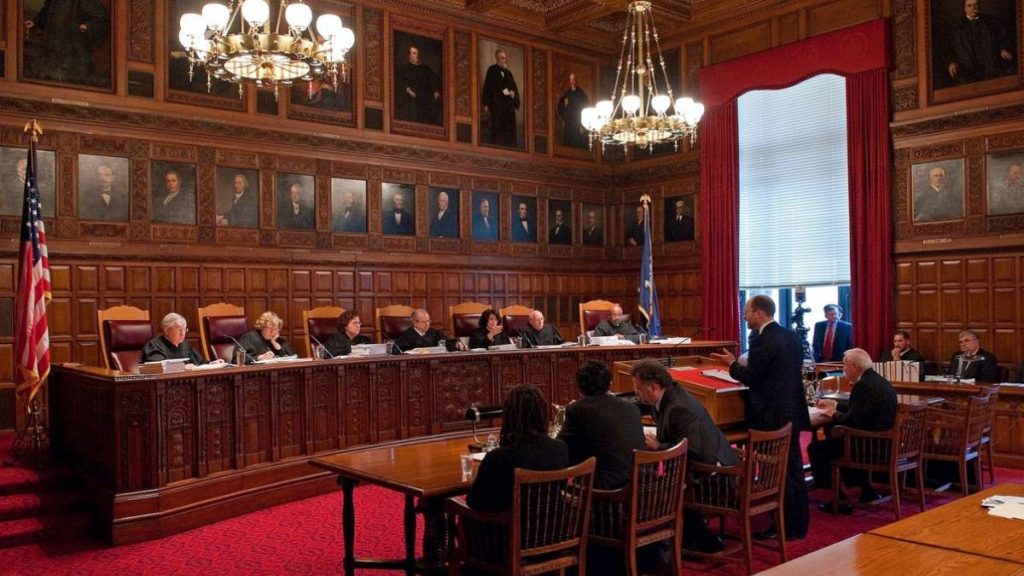In a recent move, a federal appeals court dismissed parts of a New York gun control law. It added another layer to the ongoing debate over Second Amendment rights on Friday, December 8, 2023. This decision comes after the Supreme Court’s significant expansion of gun rights last year.
The 2nd U.S. Circuit Court of Appeals removed provisions. However, it allowed others that lower courts had previously considered unconstitutional to stand. One of the provisions the panel axed was a rule that whoever was trying to apply for a gun permit had to provide information about their social media accounts.
The court also removed a part of the law that automatically banned gun possession on private property. Additionally, it pumped the brakes on the state enforcing a ban on gun possession at places of worship for a specific group of plaintiffs. Even though people saw this ruling coming, it’s not the last word on the matter; the legal tussle over New York’s law might end up reaching the Supreme Court.
ALSO READ: Federal Court’s Ruling Favors Texas in Border Battle Against Biden Administration
“Our affirmance or vacatur of the district courts’ injunctions does not determine the ultimate constitutionality of the challenged CCIA provisions, which await further briefing, discovery, and historical analysis, both in these cases as they proceed and perhaps in other cases,” the 2nd Circuit wrote in its ruling.
New York Democrats introduced the law in response to the Supreme Court’s invalidation of the state’s concealed carry licensing system last year. The NYSRPA v. Bruen decision was a game-changer, expanding Second Amendment rights significantly. The conservative majority argued that gun control laws should align with the nation’s historical stance on firearm regulation.
New York’s Concealed Carry Improvement Act (CCIA) bans firearms in 20 “sensitive places,” including iconic spots like Times Square, Yankee Stadium, and the subway system. It also adds new requirements for getting a carry permit. This means it’s no longer business as usual.
POLL—Do You Support Stricter Gun Control Laws and Assault Weapon Bans?
Various individuals and groups challenged parts of the CCIA through lawsuits. The 2nd Circuit consolidated these appeals and made its 261-page ruling, narrowing the list of blocked provisions. Some lower court decisions were overruled because of jurisdiction issues or improper assessments.
Friday’s ruling reversed decisions that had struck down gun possession bans at many “sensitive places,” such as behavioral health centers, public parks, zoos, theaters, conference centers, and so on.
However, the court supported the CCIA’s requirement that concealed carry applicants demonstrate “good moral character.” The judges argued that this requirement aims to gauge whether the applicant poses a danger, aligning with the nation’s tradition of firearm regulation.
New York Attorney General Letitia James praised the decision. She highlighted that it allows the state to enforce key provisions of the Concealed Carry Improvement Act during the ongoing legal process. She emphasized the law’s goal of keeping guns away from sensitive locations to ensure public safety.
Despite this, the court struck down a specific provision requiring applicants to disclose their social media accounts, arguing that there is no historical precedent for such a requirement. “The State points to no historical law conditioning lawful carriage of a firearm on disclosing one’s pseudonyms or, more generally, on informing the government about one’s history of speech,” the ruling read.
You Might Also Like This:
Russian-Affiliated Soldiers Charged With War Crimes for Torturing a U.S. Citizen in Ukraine
Rep Claims Women Will Face Genital Examinations If Senate Bars Trans Women From Female Sports
Citizens Sue FBI for Seizing $86 Million and Other Valuables
New York Passes “Skip the Stuff” Bill to Reduce Plastic Overuse
